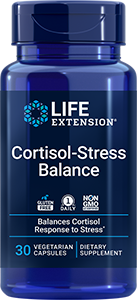
What is Ashwagandha?
Published: June 2021
Ashwagandha is a powerful herbal nutrient that has been used for thousands of years, but if this is the first time you have heard of this herbal extract, you may be thinking, Ash-what-gandha?
If you are looking for a supplement that supports your mind and body—from mood support to maintaining already-healthy blood sugar levels—turn to ashwagandha for full-spectrum coverage. Here is what you need to know about this powerful herb and why you should be including it in your wellness routine.
What is ashwagandha?

The ashwagandha plant is a short, small shrub with orange berries that resemble tomatoes. Ashwagandha is native to India, Sri Lanka and even throughout Africa and thrives in drier, warmer climates.
The name ashwagandha derives from Sanskrit, ashva which means “horse” and gandha meaning “smell.” Don’t worry—it won’t make you smell like a horse! The herb gets this name because it was believed to provide the strength and energy of a horse. While all parts of the plant are used, the roots are often used for their botanical properties.
Ashwagandha has been used in Ayurvedic medicine to help promote energy, support overall health, help promote healthy stress response and support blood pressure already within a normal range—it is thought to accomplish all of these whole-body benefits because of its calming effects to the nervous system.
Ashwagandha is an adaptogen, meaning it helps the body adapt to stress and provides benefit to overall wellbeing. Ashwagandha checks these benefits and then some.
What are the benefits of ashwagandha?

Ashwagandha has been hailed for its potential benefits for memory, vitality, hormone function, weight management and the nervous system. Because it is calming, it is also thought to support sleep.
In order for you to enjoy all the health benefits ashwagandha offers, like helping maintain already-healthy cortisol levels and fighting fatigue, you need a high-quality product. The most powerful components of the ashwagandha plant come from the root, but the leaves and fruits are often used as well.
Cortisol levels and ashwagandha

Cortisol is a hormone that is produced by your adrenal gland and is coined as the “stress hormone.” Over time, cortisol helps the body regulate the “fight or flight” response to perceived threat, danger or stress.
Your cortisol levels are higher in the morning, helping you to jumpstart your body for the day ahead, and will later drop at night when it is time to unwind. Throughout the day, cortisol levels can fluctuate as you manage modern life, like working a stressful job, having financial difficulties, or navigating issues with friends and family. All of these situations can make it harder to support our already-healthy cortisol levels, and ultimately influence how our nervous system functions.
Stress takes many shapes and forms, and can become an emotional, psychological or even a physical reaction. As you perceive and react to a source of stress, your body releases more cortisol. However, if too much cortisol is produced, or your body doesn’t shut off production, your entire nervous system can go into overdrive.
Ashwagandha may help promote already-healthy levels of cortisol, even when you’re reacting to stressful situations. Managing stress not only provides support to your adrenal glands which secrete cortisol, but also promotes your nervous system function.
Explore Our Best Stress Management Supplements
Ashwagandha for supporting already-healthy blood sugar levels

Ashwagandha root powder has been shown in clinical studies to support already-healthy blood sugar levels. This powerful nutrient may promote healthy insulin response.
Ashwagandha was shown to support healthy insulin response in in vitro studies. Supporting your body with this powerful ayurvedic herb can help you keep your glucose levels within a normal, healthy range.
Ashwagandha and testosterone levels

As men age, the production and levels of testosterone decrease over time. Longitudinal studies suggest that testosterone levels in men drop 1.6% each year with age. Low testosterone can lead to signs of aging at a faster rate as well as decreased stamina and sexual performance.
Ashwagandha is a powerful male health herb because it may help keep testosterone production within a normal, healthy range, supporting healthy hormone balance. A dedicated ashwagandha regimen may also help promote healthy fertility in men.
This ayurvedic herb has benefits that go beyond the bedroom as well—ashwagandha root has also been shown to encourage overall physical performance, providing more endurance during physical activity.
Is ashwagandha safe?

Ashwagandha is a powerful root extract, but always speak with your doctor before incorporating new supplements into your wellness routine. When it comes to dosage, it is best to follow the directions on the bottle for optimal benefits. Women who are pregnant should avoid using ashwagandha unless their doctor says it is safe to do so.
There have not been enough long-term studies to fully examine any long-term side effects of ashwagandha root, but it is important to stick to the dosage on the bottle as excessive amounts may lead to side effects.
References
- Ahmad, Mohammad Kaleem et al. “Withania somnifera improves semen quality by regulating reproductive hormone levels and oxidative stress in seminal plasma of infertile males.” Fertil Steril, August 2010, https://pubmed.ncbi.nlm.nih.gov/19501822/
- Chandrasekhar, K et al. “A prospective, randomized double-blind, placebo-controlled study of safety and efficacy of a high-concentration full-spectrum extract of ashwagandha root in reducing stress and anxiety in adults” Indian J Psychol Med., July 2012, https://pubmed.ncbi.nlm.nih.gov/23439798/
- Singh, Narendra et al. “An Overview on Ashwagandha: A Rasayana (Rejuvenator) of Ayurveda.” Afr J Tradit Complement Altern Med., Jul 2011, https://www.ncbi.nlm.nih.gov/pmc/articles/PMC3252722/
- Stanworth, Roger. “Testosterone for the aging male; current evidence and reccomended practice.” Clin Interv Aging., https://www.ncbi.nlm.nih.gov/pmc/articles/PMC2544367/
- “Ashwagandha.” WebMD, 2020, https://www.webmd.com/vitamins/ai/ingredientmono-953/ashwagandha
Always be in the know!
Access the latest deals, wellness news, expert health tips & more!






